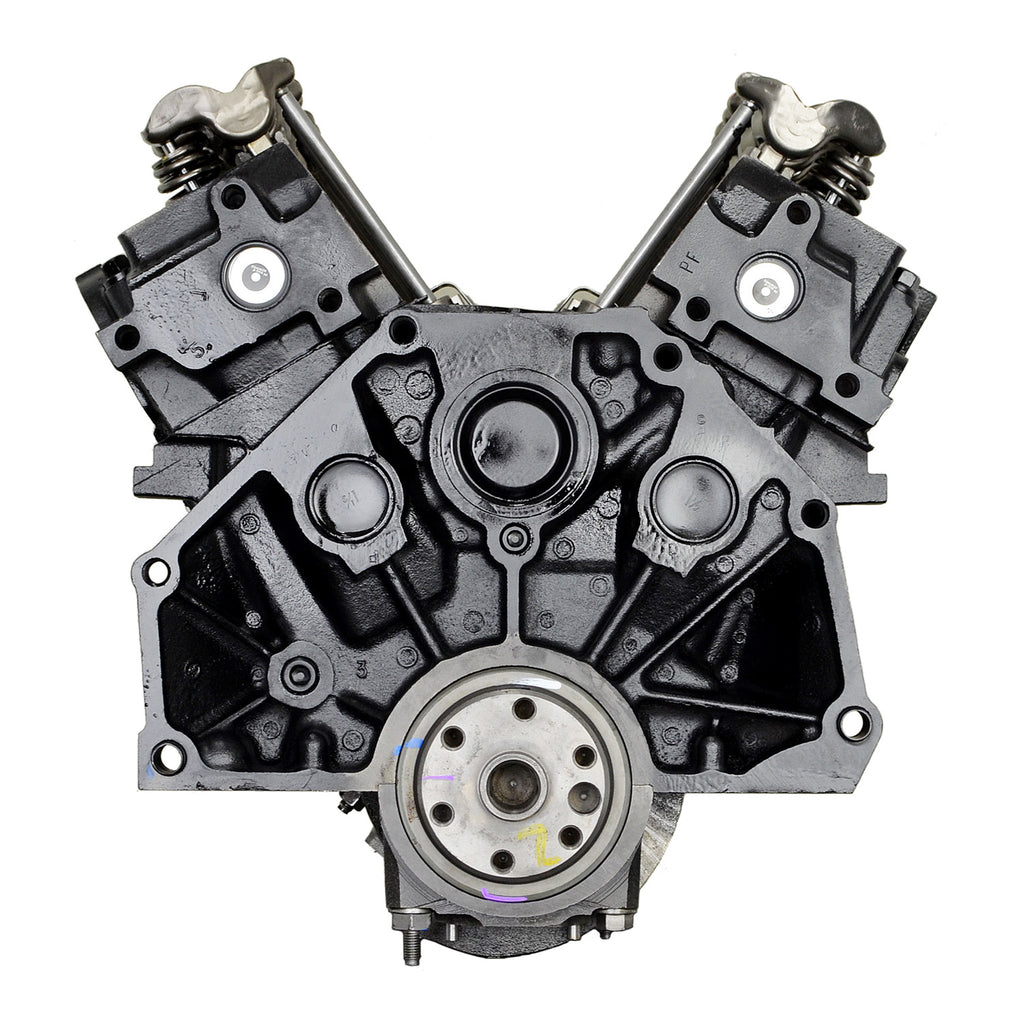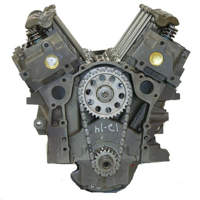Explore the Key Features of the 2.2 Ford Ranger Engine and Its Fuel Efficiency
Explore the Key Features of the 2.2 Ford Ranger Engine and Its Fuel Efficiency
Blog Article
Exactly How to Choose the Right Car Engine for Optimum Efficiency and Performance
Choosing the suitable cars and truck engine to attain an ideal equilibrium of performance and effectiveness necessitates a nuanced understanding of numerous engine types and their particular features. Factors such as engine variation, the number of cylinders, and fuel kind play a critical duty in determining both power result and gas economy. While some may lean towards performance-driven choices, others might prioritize sustainability and efficiency. Comprehending these characteristics is crucial; nevertheless, the challenge lies in lining up these features with your specific driving choices and needs. What factors to consider will eventually direct your choice?
Comprehending Engine Types
When selecting a vehicle, among one of the most vital components to think about is the engine type, which functions as the heart of the car. The engine kind dramatically affects the car's total performance, durability, and viability for your driving needs. There are primarily three engine types to consider: inner burning engines (ICE), hybrid engines, and electric engines.
Internal burning engines continue to be the most common, operating fuel or diesel. They are known for their power and velocity, making them suitable for performance-oriented vehicles. However, they might fall brief in fuel efficiency and ecological influence.
Hybrid engines integrate an inner burning engine with an electrical motor, offering a balance between efficiency and fuel economy. They are significantly preferred for motorists looking for lowered emissions while still providing adequate power.
Electric engines, powered completely by batteries, are getting grip due to their ecological advantages and reduced running expenses. They provide instant torque and a quiet driving experience, making them perfect for urban travelling.

Efficiency vs. Performance
Selecting the right engine kind involves weighing the trade-offs in between efficiency and efficiency. Performance generally describes just how well an engine can provide power and acceleration, which is frequently connected with larger displacement engines or those with turbocharging capabilities. These engines generally offer thrilling driving experiences and fast action times, making them popular amongst fanatics.
On the other hand, efficiency concentrates on gas economic situation and lower emissions. Smaller engines, particularly those equipped with innovative technologies such as direct gas injection and variable shutoff timing, tend to supply much better miles per gallon and decreased carbon impacts. While these engines might give up some power compared to their bigger equivalents, they commonly master day-to-day driving situations where high efficiency is not constantly needed.
Ultimately, the choice in between performance and efficiency depend upon specific top priorities. A driver who values spirited driving may focus on a high-performance engine, while a person looking for affordable commuting might lean toward an effective choice. Understanding these compromises is vital for making an informed choice that aligns with your driving demands and lifestyle, ensuring that the chosen engine kind complements your assumptions for both performance and performance.
Trick Requirements to Think About
Comprehending crucial requirements is vital for making a notified choice regarding the right auto engine. When picking an engine, numerous essential variables require consideration to guarantee ideal efficiency and efficiency.
It indicates the total volume of the engine's cyndrical tubes and normally correlates with power output; larger displacements frequently yield more power. Engines with more cylinders can give smoother operation and higher power, while smaller configurations can improve gas performance.
Furthermore, the engine's setup, whether inline, V-type, or rotating, influences the general layout and performance characteristics of the car - 2.2 ford ranger engine. Turbocharging and turbo charging innovations ought to likewise be reviewed; these boost an engine's power result without substantially boosting its dimension, thus boosting effectiveness
Gas kind is another essential factor to consider, as it influences both efficiency and expenses. The engine's compression ratio impacts effectiveness and power delivery; a higher ratio usually leads to much better performance, yet might need exceptional fuel. By thoroughly examining these specifications, you can select an engine that straightens with your efficiency and efficiency goals.
Assessing Driving Demands
Evaluating driving needs is a fundamental action in determining the ideal car engine for your way of living and usage patterns. Begin by evaluating your daily driving behaviors, consisting of the frequency and duration of trips. If your driving mainly contains brief commutes in city atmospheres, a smaller sized engine with excellent fuel effectiveness might be adequate. Alternatively, if you often take on long-distance trips or need towing capabilities, a more powerful engine may be essential.
Think about the surface you normally navigate. Hilly or rugged landscapes might demand an engine with higher torque for much better performance. Additionally, assess guest and cargo demands; bigger households or those who transport products might benefit from automobiles with increased power and capacity.
It's additionally necessary to assess your fuel choices. Diesel engines frequently provide remarkable torque and fuel economic climate for much heavier vehicles, while gasoline engines may supply a smoother and quieter experience. Lastly, aspect in ecological factors to consider, as hybrid or electric engines can give a more lasting choice without giving up performance. By thoroughly understanding your driving requirements, you can make an informed choice that aligns with both efficiency expectations and performance objectives.
Future Patterns in Engine Technology
As the vehicle market continues to progress, advancements in engine technology are leading the way for much more lasting and reliable driving experiences. One significant trend is the shift toward electrification, with hybrid and totally electrical powertrains getting prominence. Automakers are spending greatly in battery innovation to enhance energy density and lower billing times, eventually enhancing the practicality of electrical vehicles (EVs)
One more emerging trend is the growth of hydrogen fuel cell engines. 2.2 ford ranger engine. These systems use the capacity for zero-emission driving while supplying refueling times comparable to traditional fuel engines. Furthermore, advancements in combustion technology, such as variable compression ratios and boosted turbocharging, are maximizing conventional interior burning engines for much better performance and performance
Digital assimilation is likewise a crucial facet of future engine innovation. The execution of artificial intelligence and machine discovering permits a knockout post real-time information analysis, making it possible for smarter engine monitoring systems that adapt to driving problems and improve gas efficiency.

Verdict
In conclusion, choosing the ideal vehicle engine requires a detailed assessment of different factors, consisting of engine kind, performance demands, and efficiency objectives. By understanding the distinctions in between various engine kinds he said and considering vital requirements, people can straighten their choices with certain driving demands. As improvements in engine innovation continue to emerge, continuing to be notified about future trends will better enhance decision-making, inevitably bring about a car that stabilizes efficiency and gas efficiency efficiently.
Picking the suitable automobile engine to achieve an optimum equilibrium of performance and effectiveness demands a nuanced understanding of various engine kinds and their certain qualities. There are mainly 3 engine kinds to think about: interior burning engines (ICE), hybrid engines, and electrical engines.
Performance usually refers to how well an engine can provide power and velocity, which is typically associated with bigger displacement engines or those with turbocharging capabilities. Diesel engines usually supply premium torque and gas economic climate for much heavier automobiles, while gas engines might offer review a smoother and quieter adventure.In verdict, selecting the ideal car engine demands a thorough evaluation of numerous variables, consisting of engine kind, efficiency demands, and performance objectives.
Report this page